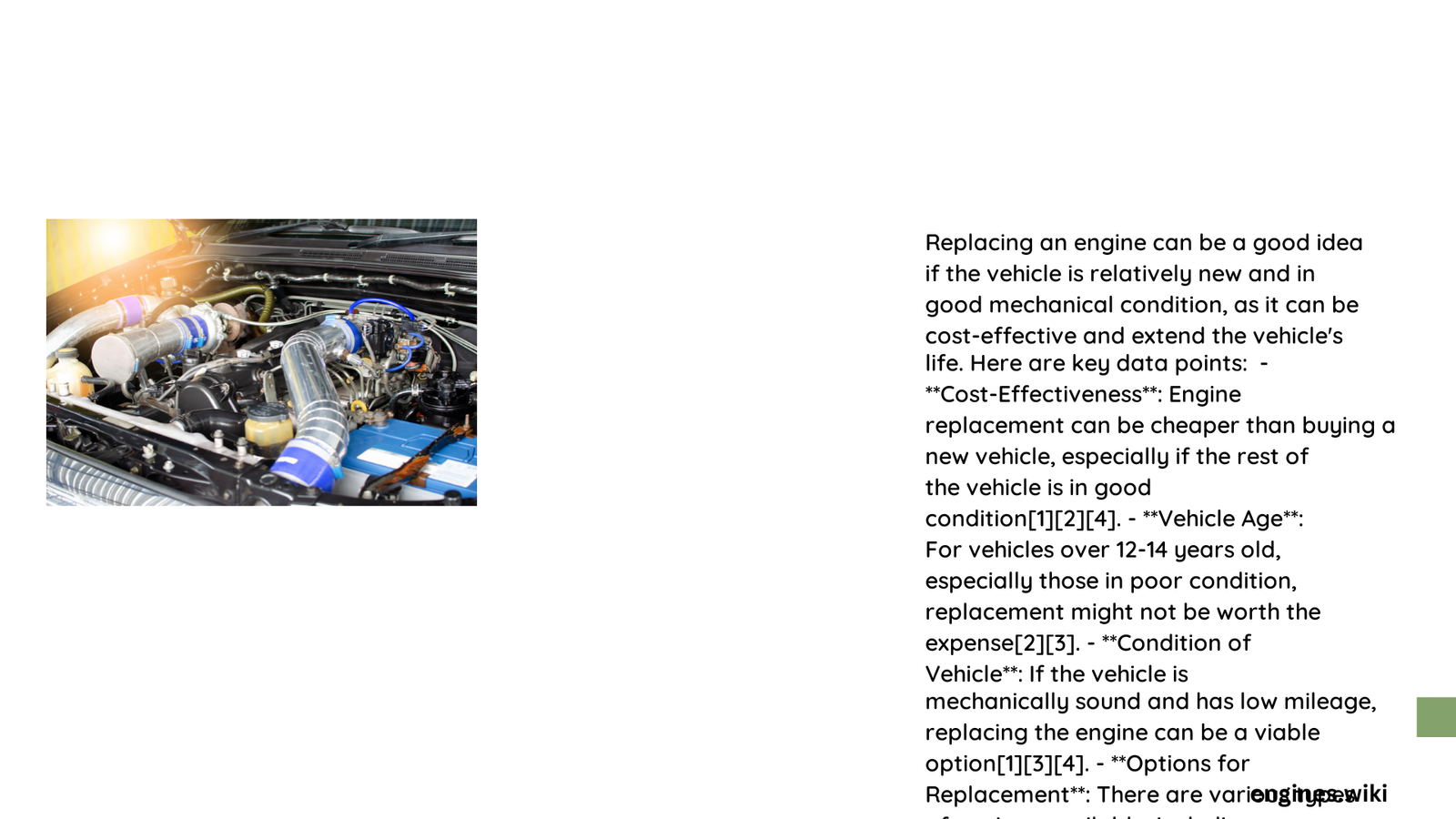Replacing a car engine is a complex decision that involves weighing multiple financial and technical factors. Vehicle owners face a critical choice between investing in an engine replacement or purchasing a new vehicle, with potential savings ranging from $6,287 to $12,878. The decision depends on various elements like vehicle age, overall condition, repair costs, and long-term reliability expectations.
What Determines Engine Replacement Value?
Cost Analysis: Replacement vs. New Vehicle
Engine replacement costs vary significantly based on several crucial factors:
| Vehicle Type | New Engine Cost | Labor Cost | Total Estimated Cost |
|---|---|---|---|
| 4-Cylinder | $4,000 | $1,500 | $5,500 |
| V6 | $5,500 | $2,000 | $7,500 |
| V8 | $7,000 | $2,500 | $9,500 |
When Should You Consider Engine Replacement?
Evaluate Vehicle Condition
- Vehicle age less than 10 years
- Minimal structural damage
- Low to moderate mileage
- Reliable maintenance history
Financial Considerations
- Replacement cost significantly lower than new vehicle
- Remaining vehicle components in good condition
- Potential for extended vehicle life by 5-10 years
Performance and Reliability Factors
Key Performance Indicators:
– Restored fuel efficiency
– Improved power output
– Enhanced overall vehicle reliability
– Potential 200,000-300,000 mile lifespan with proper maintenance
Potential Risks and Challenges
What Could Go Wrong?
- Compatibility issues with existing components
- Higher complexity in modern vehicles
- Potential additional repair requirements
- Limited warranty on replacement engines
Strategic Decision-Making Process
Recommended Evaluation Steps:
1. Get comprehensive vehicle inspection
2. Obtain multiple engine replacement quotes
3. Compare replacement cost with vehicle market value
4. Assess long-term maintenance expectations
5. Consider personal financial situation
Expert Recommendations
Automotive experts suggest engine replacement is most viable when:
– Vehicle is well-maintained
– Replacement cost is under 50% of vehicle’s current value
– No significant structural or transmission issues exist
– Owner desires to retain current vehicle
Technical Complexity Considerations
Modern Engine Replacement Challenges:
– Advanced computer systems
– Complex electrical integrations
– Specialized diagnostic requirements
– Need for precise calibration
Cost-Saving Strategies
Alternative Engine Options
- Rebuilt engines (most cost-effective)
- Remanufactured engines
- Used engines from reliable sources
Final Verdict: Is Replacing an Engine Good?
Conditional Recommendation:
– Yes, if vehicle is otherwise in excellent condition
– No, if repair costs exceed vehicle’s market value
– Consult professional mechanic for personalized assessment
Conclusion

Engine replacement represents a strategic investment requiring careful analysis of technical, financial, and performance factors. By methodically evaluating your specific situation, you can make an informed decision that maximizes vehicle longevity and minimizes unnecessary expenses.
